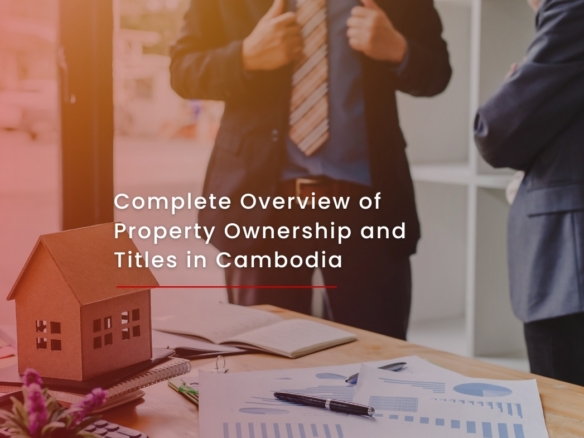Owning land or landed property in Cambodia as a foreigner is subject to specific regulations and restrictions, but it offers compelling investment opportunities due to the country’s vast untapped land and the development potential of its strategic cities. Here’s a breakdown of key points:
Why Land/Landed Property is Highly Desired:
Versatile Value: Landed property serves as a foundational base for various developments, including commercial, residential, agricultural, and industrial ventures.
Capital Appreciation: Depending on its location, land can appreciate significantly over time, making it a secure investment with the potential for substantial returns.
Symbol of Security and Legacy: Land ownership is viewed as a symbol of security and a lasting legacy, adding to its desirability within the real estate market.
Opportunities in Cambodia:
Strategic Location: Cambodia’s strategic position in Southeast Asia, bordered by Thailand and Vietnam, makes it an attractive location for investors looking to capitalize on the region’s economic growth.
Urbanization and Development: Cities like Phnom Penh, Sihanoukville, and Siem Reap are experiencing rapid urbanization and development, leading to increased demand for land and property.
Ways Foreigners Can Invest:
Investment in a Cambodian Company: Foreign investors can establish a Cambodian company where the majority of shares are held by Khmer citizens. The company can then own land, with foreigners holding minority shares.
Trust Services: Setting up a trust to hold and manage property interests in Cambodia can provide added protection and flexibility. However, it requires careful legal consideration and may offer estate planning benefits.
Long-Term Lease Agreement: Foreigners can acquire land through long-term lease agreements, typically up to 50 years with a one-time renewal option for 99 years. This grants significant control and use of the property during the lease period.
Nominee Structure: Some foreigners use a nominee structure, where Cambodian citizens hold legal title to the property on behalf of the foreign investor. However, this method can be legally complex and carries risks.
Requirements for Investment:
Valid Passport and Visa: A valid passport and visa permitting stay in Cambodia for property transactions are essential.
Financial Resources: Sufficient funds are required to cover the purchase price, transaction costs, and ongoing ownership expenses associated with the property investment.
By understanding these options and requirements, foreigners can navigate the Cambodian real estate market effectively and capitalize on its potential for growth and investment opportunities.



